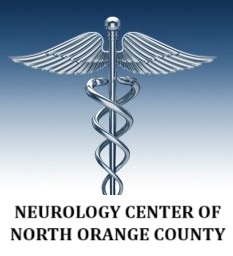Is an Alzheimer’s Clinical Trial Right for Your Loved One? Key Considerations
When an Alzheimer’s disease diagnosis is determined, many patients and their families feel paralyzed. Alzheimer’s disease is a disease that is famous for its ruthless destruction.
The cognitive impairment that caused the patient to seek medical attention can only be expected to get worse over time, and the family will be put under the strain of trying to help the patient stay as comfortable as possible for the last few years of life.
Often, the main feeling of sufferers and their families is one of despair and hopelessness.
The good news is that Alzheimer’s researchers are making more progress every day on unlocking the secrets of this degenerative disease, allowing them to find ways to slow and even stop the progress of the disease.
All new progress on treatment for Alzheimer’s begins with clinical research. In recent years, for example, several new drugs have emerged that slow and even reverse the formation of amyloid plaques, deposits that form in the brain and cause cognitive impairment. And another physical manifestation of the disease, tau tangles, can be stopped and reversed by tau-targeting drugs.
These drugs would not exist without clinical trials studying their impact on patients with dementia and Alzheimer’s disease.
Some of these new drugs are already available with a prescription, offering potential extension of a patient’s remaining functional life. But what other secrets lie in wait within the Alzheimer’s brain? What new breakthroughs may occur in the coming months or years–possibly in time to help your loved one?
The only way to find out is for patients to participate in clinical trials.
Trial participation is a vital component of all research. The rewards for the patient may only be support and a sense of importance as their participation helps to protect future patients for unnecessary suffering; but sometimes clinical research yields benefits that can help an Alzheimer’s disease patient to extend their life or enjoy it more, which is certainly an excellent outcome.
Suggest that your loved one join one or more Alzheimer’s clinical trials and you may find that it gives meaning and hope to a situation that previously seemed to contain nothing but sorrow and darkness.
Clinical Research Needs Patients with Alzheimer’s Disease
Clinical studies are ongoing every day. Their dementia research sometimes focuses on looking for drugs or therapies that slow the progress of the disease itself; other times the goal is to reduce the strain on patients and caregivers, such as a drug that helps to protect from the dreaded agitation that some patients unfortunately experience.
There are so many clinical trials ongoing that the main difficulty may be in selecting which one is the most appropriate for your loved one.
Will We Qualify?
Participants are needed in many stages of the disease. Some clinical studies can only use patients with very mild cognitive impairment, while others seek patients who have more advanced symptoms; and others, like the trial mentioned above that deals with agitation, require participants in a variety of stages but that specifically exhibit agitation as one of their symptoms.
If you choose to participate, you will fill out a contact form and will then be questioned in order to evaluate which clinical trials are most appropriatefor your loved one.
Some studies also need healthy volunteers to establish a baseline and for other purposes, so family members may find it very convenient and rewarding to join the trial alongside the patient.
How to Find Ongoing Clinical Trials Locally
One easy way to discover alzheimer’s clinical trials is to ask your physician. Beyond this, you may wish to try Google.
However, if you are in or near Orange County California, it will be worthwhile to request information from the Neurology Center of North Orange County. They are an important research facility and always have several trials to choose from.
Their trials are open to all Alzheimer’s patients, even those who do not have health insurance, and they provide excellent support to trial participants and their caregivers.
Further Benefits of Clinical Trials Participation for Patients with Alzheimer’s Disease and Dementia

Beyond the chance of being among the first to receive a treatment that may change the course of the disease, other reasons to confirm your interest in joining a study include the chance to have your loved one monitored during the trials.
Tracking the Progress of Dementia and Alzheimer’s Disease
In order to document the impacts of the treatment being studied, dementia and alzheimer’s patients will be carefully monitored by expert researchers. This can provide a degree of stability and can provide critical information on the disease’s progress.
New symptoms can be explained by the outcomes of brain scans, and those who participate receive vital information and emotional support that may not be available to those who do not take advantage of this opportunity.
Request information today and confirm your interest to ensure that you can join an ongoing trial. Once you begin you will realize how important it is to continually evaluate the progress of the dementia or Alzheimer’s, and how support and understanding can protect caregivers from burnout.
Help Find the Cure: Clinical Trial Participants are Crucial to Developing New Treatments

Alzheimer’s disease clinical trials have brought amazing advances to the management of the disease in recent years, but there are still many difficulties in finding a cure, and many symptoms that doctors hope to manage by way of new treatmentoptions. Alzheimer’s disease and dementia research are both advanced only by way of clinical trials, and for those trials to succeed they must have patients willing to participate.
If you or a loved one suffer from dementia, Alzheimer’s or some other degenerative disease that is causing cognitive impairment and memory loss, begin your participation in Alzheimer’s research today.
The earlier you join clinical trials, the more likely you are to be able to have several studies to choose from, and the better chance you have of stopping the disease progression early on before developing further symptoms.
Even if your study does not find the cure, the treatment may add valuable weeks or month’s to the life of your loved one, and delay them from developing more symptoms.
Check out the site for the Neurology Center of Northern Orange County and begin to help research new treatment options today.




